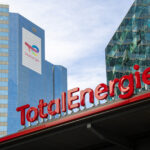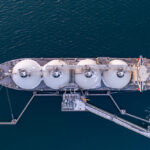Investments in new oil production have been stalling since about 2014. This has led many to suggest that higher prices for longer are on the cards, supported by anti-oil industry energy policies in key jurisdictions that are home to the largest private producers.
Yet a case might be made that although lower, the oil industry’s investments over the past decade have become better targeted at prospects with a good chance of a discovery. Either that, or they have become luckier than usual. Nowhere is this clearer than in Africa.
Earlier this month, French TotalEnergies said that it would buy a 33% stake in an exploration block offshore South Africa. Its partner QatarEnergy was also taking part in the acquisition in Block 3B/4B, with a 24% interest. The acquisition is part of the French supermajor’s exploration campaign in South Africa’s neighbor Namibia, which shares the Orange Basin with South Africa.
The Orange Basin has recently become something of a hot spot rivaling Guyana. The last couple of years have seen a string of discoveries revealing reserves estimated at around 5 billion barrels so far. And the rate of success has been unusually high, with 15 confirmed discoveries of commercial volumes of hydrocarbons in 17 exploration wells drilled since February 2022, per the Financial Times.
The largest discovery so far was made by TotalEnergies in the Venus field offshore Namibia, with estimated reserves of 3 billion barrels. No wonder the company is expanding in the area—even as forecasts for peak oil demand persist.
“Following the Venus success in Namibia, TotalEnergies is continuing to progress its Exploration effort in the Orange Basin,” the senior vice president for exploration at the French company, Kevin McLachlan, said last week, following the news of the South Africa investment.
“South Africa’s side of the Orange Basin resembles those of Namibia, it is highly prospective with at least two prospects in the northern region of the basin potentially containing millions of barrels of oil and associated gas,” according to Jonathan Salomo, who is the lead geologist for the West coast of South Africa at the country’s Petroleum Agency.
TotalEnergies and QatarEnergy are not alone in their pursuit of Africa’s hitherto untapped oil and gas riches. In January this year, a Canadian company specifically focused on Africa and named accordingly—Africa Oil Corp—completed the purchase of additional acreage in the same Orange Basin block that TotalEnergies and the Qatari state oil company are planning to expand into.
The block is estimated to contain prospective resources equal to some 4 billion barrels of oil equivalent, Offshore Energy reported back in January, with success probability ranging between 11% and 39% for the 24 prospects in the block.
Southern Africa is a hotspot, then, but it is not the only one in Africa. Offshore Energy again reported this month that a Houston-based energy company had struck a deal to buy a Swedish exploration player to gain access to an offshore block in the Ivory Coast.
The target company, Svenska Petroleum Exploration, holds a 27% stake in the Baobab field offshore the Western African country that is most famous for its cocoa. The Baobab field is a producing one, yielding some 4,500 gross barrels of oil equivalent daily, with plans to expand this and extend the productive life of the field.
Oil is not the sole focus of international investors, either. Liquefied natural gas has become a priority for many as Europe joined the big buyers’ club two years ago, providing a huge boost to exploration, including in Africa, which already produces some LNG but could produce a lot more.
The Greater Tortue Ahmeyim LNG project, for instance, is about to enter operation in the third quarter of this year. Located on the border between Senegal and Mauritania, the project is led by BP in partnership with Kosmos Energy and the state energy companies of the two countries. GTA LNG will have an annual capacity of 2.3 million tons initially, to be expanded to 10 million tons over three phases.
Next year could also see the pre-final investment decision on the Tanzania LNG terminal, which aims to tap the country’s offshore gas resources. The price tag of the project is $42 billion and it is being developed by an all-star cast including Equinor, Shell, and Exxon. The capacity of the project is seen at a minimum of 10 million tons annually, potentially turning Tanzania into a sizeable player in the LNG market.
Oil and gas exploration in Africa is booming, in part because the continent contains a lot of the hitherto undiscovered global hydrocarbon reserves and in part because local governments appear to be a lot more open to the idea than the governments in Big Oil’s home countries and nearby jurisdictions.
Wood Mackenzie calculated last year that the energy industry is investing a total $800 billion in African oil and gas. The investment cycle began in 2010, the firm’s upstream research director said at an industry event in October, and will end with Africa emerging as a leading producer of LNG from floating terminals and a growing source of deepwater oil.
By Irina Slav for Oilprice.com
Lead image (Credit: Reuters)







